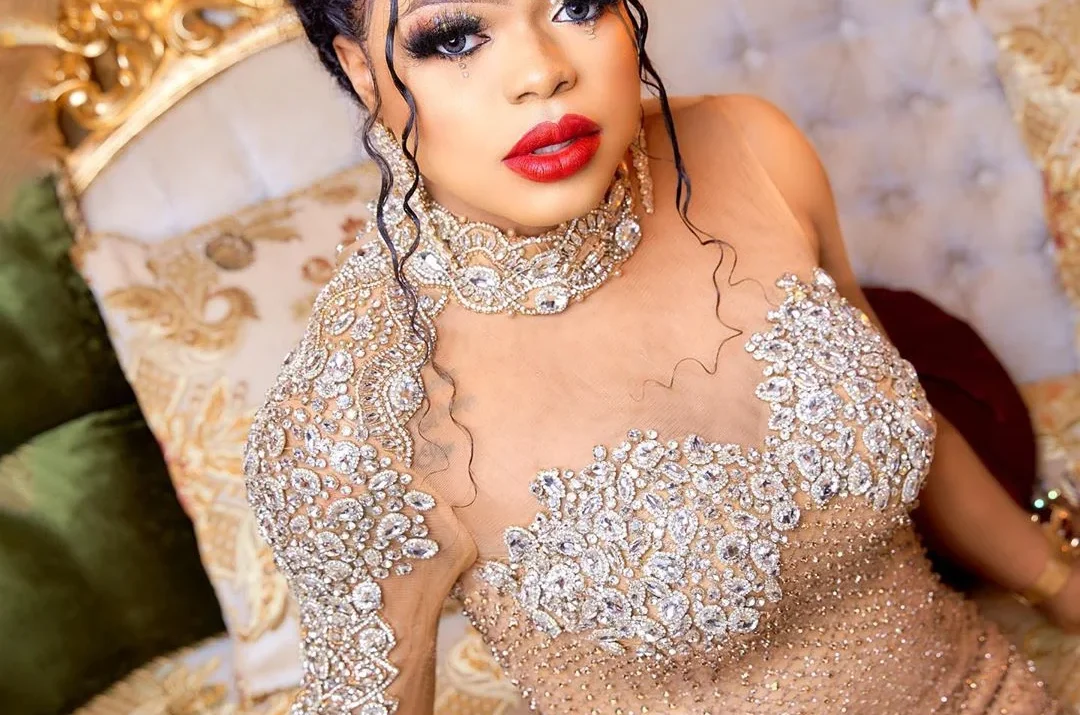In a country like Nigeria, where political instability, insecurity, and economic hardship continue to shape public discourse, it is rather curious how a figure like Idris Okuneye, popularly known as Bobrisky, has managed to dominate headlines. Once an obscure social media personality, Bobrisky has evolved into a controversial figure who not only stirs public sentiment but also raises questions about the deeper societal and systemic issues plaguing the nation. His lifestyle, public antics, and recent legal controversies serve as a lens through which we can view how influence, wealth, and corruption often determine one’s standing in Nigerian society.
From Cross-Dresser to Social Media Sensation
Bobrisky’s rise to prominence was initially fueled by his bold and unconventional persona as a cross-dresser—an identity that starkly contrasts with the traditional norms of Nigerian society, where gender roles are strictly defined, and deviation is often met with public backlash. Yet, instead of fading into obscurity, Bobrisky became a social media sensation, amassing millions of followers, both admirers and critics, and creating a brand that continues to captivate audiences.
With his flamboyant lifestyle, Bobrisky flaunts luxury at every turn—showcasing high-end cars, designer clothing, and lavish parties. His public image is one of confidence and defiance, and he has navigated Nigeria’s conservative landscape by cultivating a celebrity status that keeps him relevant, despite controversy after controversy. He has become an influencer with significant reach, drawing attention to himself, whether through shocking statements or viral social media posts.
The Kirikiri Prison Controversy
Bobrisky’s recent troubles came to a head when rumors surfaced regarding his alleged six-month prison sentence at Kirikiri Correctional Facility in Lagos for currency abuse. While there has been no concrete confirmation of his imprisonment, the debate surrounding it has sparked widespread speculation. For many Nigerians, the question isn’t whether Bobrisky served time, but rather, how someone so deeply entrenched in the world of wealth and influence can seemingly skirt the consequences of breaking the law.
According to social media activist Martins Otse, popularly known as Very Dark Man (VDM), Bobrisky’s time in prison was far from ordinary. VDM, in a video that quickly went viral, alleged that Bobrisky received preferential treatment at the correctional facility, enjoying accommodations typically reserved for wealthy and high-ranking individuals. VDM’s revelations exposed the corruption within Nigeria’s justice and correctional systems, where bribes and influence can determine the quality of treatment behind bars.
VDM’s claims didn’t end there. He also accused officers from the Economic and Financial Crimes Commission (EFCC) of accepting a N15 million bribe from Bobrisky in exchange for dropping money laundering charges. These allegations further expose the dysfunction within Nigeria’s law enforcement and legal institutions, where wealth and status can often shield individuals from accountability.
A Reflection on Society’s Values
Bobrisky’s story is not just one of personal fame and fortune—it is emblematic of how Nigerian society often elevates individuals based on their wealth and influence, rather than their character or contributions to the public good. While his persona may entertain and intrigue many, it also raises serious concerns about the priorities and values of society.
One particularly troubling aspect of Bobrisky’s rise is how influential figures within Nigeria’s entertainment industry, particularly Nollywood, have embraced him. Nollywood stars have been seen attending his lavish parties, dancing and celebrating with him, seemingly unbothered by the implications of endorsing someone whose lifestyle and public behavior challenge the values held by many Nigerians. To them, it may appear as harmless fun or simply an opportunity to be part of the entertainment theatrics. But this level of endorsement, however unintentional, can be seen as normalizing behavior that some might argue deviates from the cultural and moral compass of the country.
This raises questions about the responsibility of public figures and influencers in shaping societal norms. Bobrisky’s rise to fame has been made possible not just by his own efforts, but by a society willing to turn a blind eye to deeper questions about morality, justice, and integrity. In the quest for fame, popularity, and wealth, are we as a society willing to overlook the cost?
Bobrisky’s Influence and Connections
It is worth noting that Bobrisky’s influence extends beyond social media and entertainment. His connections to high-profile figures within Nigeria’s political and business spheres have further emboldened him. Reports suggest that he has been linked to powerful individuals, which might explain his perceived sense of invincibility.
A viral video showed Bobrisky attending a Muslim gathering where he donated a significant sum of money, despite his controversial appearance. Islamic clerics in the video praised him for his generosity, raising eyebrows across the nation. How does someone with such a divisive persona receive praise in such a setting? Wealth, it seems, has a way of transcending social norms, and in Nigeria, money often buys acceptance, even in spaces where one might expect rejection.
It is this combination of wealth, influence, and connections that has allowed Bobrisky to thrive in a society that, on the surface, appears to reject what he represents. But as his story shows, when money and power are involved, principles often take a back seat.
Corruption and the Nigerian System
The revelations surrounding Bobrisky’s alleged prison treatment and the EFCC bribery scandal have re-ignited the conversation around corruption in Nigeria. Nigerians are all too familiar with the idea that money and influence can buy preferential treatment, but the Bobrisky case underscores just how pervasive this corruption is.
The idea that a convicted individual, especially one as controversial as Bobrisky, could enjoy such privileges during a supposed prison sentence speaks volumes about the state of Nigeria’s correctional and legal systems. VDM’s allegations, though shocking, come as no surprise to many Nigerians who are already disillusioned with the country’s institutions. The lack of transparency, accountability, and justice in Nigeria is well-documented, and Bobrisky’s case is yet another example of how deeply these issues run.
Conclusion
The saga of Bobrisky is about more than just a flamboyant social media personality; it’s a reflection of the broader societal issues that Nigeria faces. His rise to fame, his entanglements with the law, and his apparent ability to escape accountability highlight the complex relationship between wealth, influence, and justice in Nigeria.
While Bobrisky’s antics may provide entertainment for some, they serve as a sobering reminder of the deep-rooted problems within Nigerian society. His story forces us to confront uncomfortable truths about our values, the role of public figures, and the systemic corruption that continues to undermine the country’s institutions.
In the end, Bobrisky’s rise and the controversies surrounding him are a reflection of a society where wealth often trumps morality, and where the line between right and wrong is increasingly blurred by power and privilege.




